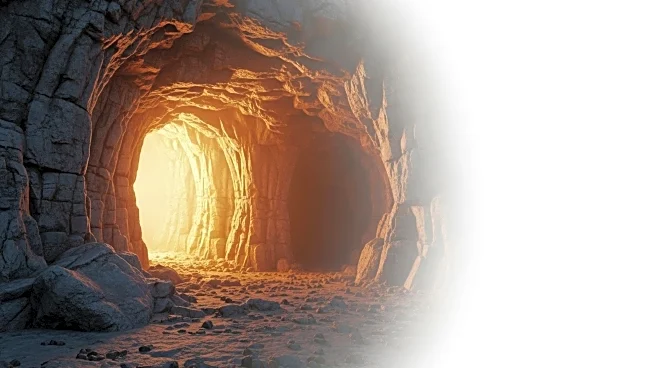What is the story about?
What's Happening?
A recent study examines how prehistoric humans survived the Toba supereruption, which occurred 74,000 years ago in present-day Indonesia. The eruption was one of the largest catastrophic events in Earth's history, ejecting 672 cubic miles of volcanic ash and potentially causing global cooling. Despite the severity of the eruption, archaeological evidence suggests that humans not only survived but adapted to the challenging conditions. Sites in South Africa and Ethiopia show continued human activity and technological innovation following the eruption, indicating resilience and adaptability.
Why It's Important?
Understanding how humans survived the Toba supereruption provides insights into human resilience and adaptability in the face of catastrophic events. This knowledge is crucial for preparing for future natural disasters, as it highlights the importance of adaptability and innovation in survival strategies. The study also challenges previous hypotheses about the impact of the eruption on human population sizes, suggesting that humans were able to thrive despite environmental challenges. This research contributes to our understanding of human evolution and the factors that have shaped our ability to endure and adapt.
What's Next?
Future research may focus on collecting more data from climate, environmental, and archaeological records to better understand the conditions that enabled human survival during the Toba supereruption. Scientists may also explore the implications of this adaptability for modern disaster preparedness and response strategies. Additionally, ongoing studies of volcanic activity and its impact on human populations could inform policies and programs aimed at mitigating the effects of future eruptions.
Beyond the Headlines
The study of the Toba supereruption and human survival raises questions about the role of environmental and genetic factors in shaping human evolution. It also highlights the importance of interdisciplinary research in understanding complex historical events. The findings may influence how scientists approach the study of other extinction-level events and their impact on human populations.















